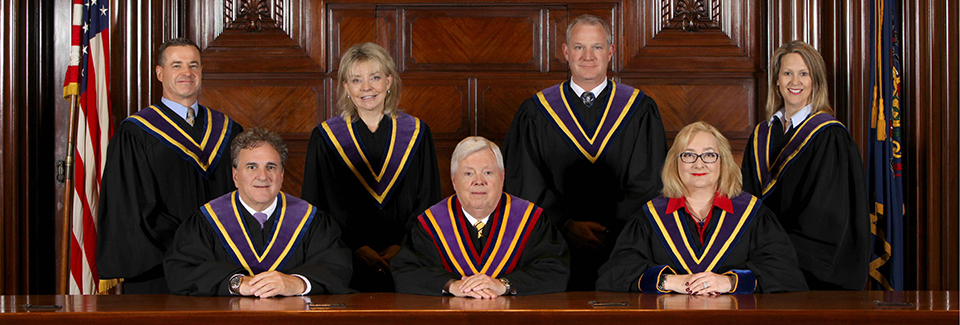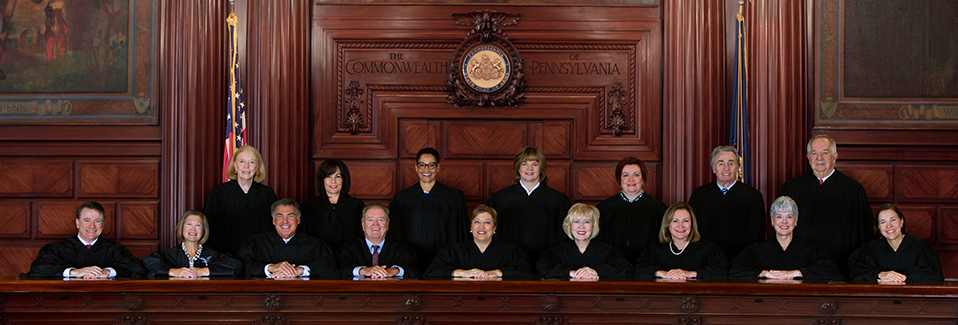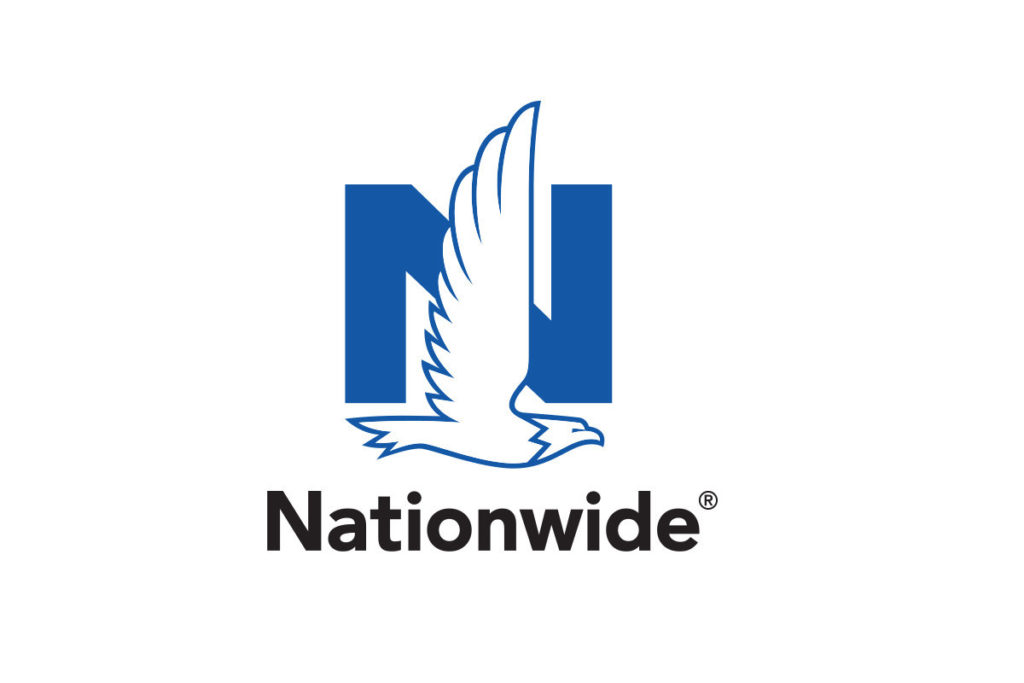
Pa. high court to weigh insurer repair quality duty in $21M Nationwide case
By onBusiness Practices | Insurance | Legal | Repair Operations
Besides determining whether Pennsylvania Superior Court judges went too far in interpreting facts in overturning a $21 million auto insurance bad faith judgement against Nationwide, the state Supreme Court will also examine the carrier’s responsibility for the quality of the collision repairs at the heart of the case.
The Supreme Court on Friday said it would hear the plaintiff’s appeal of the Superior Court’s 2-1 June 2018 decision in Berg v. Nationwide and in doing so consider: “Does an insurer that elects under an insurance contract to repair collision damage to a motor vehicle, rather than pay the insured the fair value of the loss directly, have a duty to return the motor vehicle to its insured in a safe and serviceable condition pursuant to national insurance standards, and pursuant to its duty of good faith and fair dealing?”
Both Nationwide and Mayerson Law this week provided statements on the Supreme Court’s decision to hear the case.
“Nationwide is aware of the development,” Nationwide corporate communications director Eric Hardgrove said in a statement Thursday. “We plan to continue to vigorously defend our adjustment of this claim.”
“We are pleased but not surprised that the Supreme Court of Pennsylvania granted review because this is a case of substantial public importance, involving issues of highway safety and reasonable access to our courts,” plaintiff attorney Ben Mayerson said in a statement. “The handling of collision repair claims is important to all the citizens of this state. Insurance companies undertaking collision repairs through direct repair programs must pay equal attention to safety as to cost containment. Equally important is making certain that insurance companies never apply a litigation strategy against its own insured designed to price its insured out of court.
“In this case, the evidence proved that Nationwide willfully risked public safety by permitting a vehicle with substantial structural repair failures to be returned to the highways after that vehicle had been declared a structural total loss, thereby risking not only the safety of its insured but also the motoring public. The evidence also proved that when its insured discovered the structural repair failures, rather than conceding any failed repairs, Nationwide applied against its insured a documented corporate strategy to price its insured out of court, paying its attorneys over $3 million to defend this case over a period now spanning 21 years. During that period, Nationwide concealed evidence of its scienter and forced its insured to incur over $3 million in legal fees without ever attempting to settle the bad faith suit.”

The case and trial ruling
The Superior Court majority held in a 2-1 decision that Common Pleas Judge Jeffrey Sprecher overreached in finding Nationwide’s behavior in Berg v. Nationwide constituted bad faith.
Nationwide had suggested plaintiffs Daniel and Sheryl Berg (who died during the course of the litigation) have their 3-month-old, leased 1996 Jeep Grand Cherokee repaired at one of its direct repair program shops following a 1996 crash, according to a 2017 summary of the case by collision industry attorney Erica Eversman and another summary by plaintiffs’ attorney Mayerson Law.
The Blue Ribbon repair facility said the Grand Cherokee was a total loss, given the frame damage. Nationwide disagreed, and a claims log item notes: “REPAIRS ARE APPROXIMATELY 50% of ACV NATIONWIDE WILL NEVER RECOVER THE DIFFERENCE IN SALVAGE VALUE.”
Four months later, the Jeep Grand Cherokee work was finished. It was unsafe but Nationwide either didn’t inspect it as it should have or did inspect it and didn’t tell the Bergs, Sprecher concluded in 2014.
Sprecher even argued that an insurer is responsible for the work of its direct repair program shops — a ruling that should give carriers and potentially even OEMs with their own recommended networks pause. He wrote in 2014:
Lindgren is one of Defendant’s Blue Ribbon repair shops. A large percentage of its business is from Defendant. Defendant entered into a contractual relationship with Lindgren in which it gets a discount on parts and other benefits. Defendant and Lindgren are clearly aligned. Defendant’s inspectors had to be closely monitoring the repair work at Lindgren which is being paid for completely by Defendant. Or if it did not, it owed a duty to its fiduciaries to do so.
In order to determine if “it looked like the vehicle was repairable,” the Jeep had to be inspected. Lindgren’s Mr. Joffred and Defendant’s Mr. Witmer both agreed; therefore, regardless if Lindgren did the inspection and Defendant did not; it was Defendant’s choice and duty to inspect or to take the risk of relying on Lindgren’s inspection. In either case, Defendant is liable for the action or inaction. The findings of this court are that Defendant did inspect the Jeep and even if it did not as it claims, it should have. It had a duty to the customer to do so. Lindgren is Defendant’s Blue Ribbon repair shop.
Sprecher’s 2015 opinion decries Nationwide’s attempt to use a “scorched earth” litigation policy costing $3 million in its own attorneys fees and notes “several legal duties and fiduciary obligations that it recklessly disregarded.”
Among the bad-faith behavior alleged in that document: Nationwide’s refusal to sell the Jeep to the Bergs’ attorney followed by its destruction of what Sprecher called a piece of “vital evidence.” Sprecher also declared it bad faith that Nationwide waited until the Bergs had finished all lease payments on the Grand Cherokee to total it.
He awarded $18 million plus another $3 million based on what Nationwide paid in its own attorneys. The Superior Court’s overturning of Sprecher’s decision appears to mean that Nationwide would only be responsible for the $295 in actual damages a jury awarded for finding Nationwide violated Pennsylvania’s unfair trade practices law.
The jury also determined the main body shop in the case, Lindgren Chrysler-Plymouth, should have to pay $1,925 in compensatory damages.
Insurer obligation?
Judge Victor Stabile’s majority opinion for himself and Judge Paula Ott summarized the Bergs’ complaint against Nationwide as stating the carrier through its Blue Ribbon DRP shops “promised to restore an insured vehicle to pre-accident condition ‘within repair industry standards’ and to remedy any departure from such standards. Appellant did not promise to inspect an insured vehicle prior to its return.”
“In these circumstances, we cannot conclude that Appellant’s failure to inspect Lindgren’s repair work amounts to bad faith,” Stabile continued in the majority opinion. “Neither the trial court, the Bergs, nor the Dissent, cite any legal authority supporting a conclusion that an insurer’s duty of good faith and fair dealing encompasses an inspection of repairs prior to returning a vehicle to an insured. Even were we to find such a duty, the evidence here does not rise above negligence, much less support a finding of bad faith by clear and convincing evidence.”
The dissent by President Judge Emeritus Correale Stevens mentioned that plaintiff’s insurance claims expert James Chett, a former Alliance Insurance employee, “testified insurers have an obligation to ensure vehicles are repaired safely and that Nationwide was contractually obligated to pay for repairs to the jeep. Although the Majority interprets the evidence to the contrary, the fact that the repair job was to take about twenty-five and one-half days to complete, but instead required four months, further supports the trial court’s conclusion that the vehicle was not capable of a safe repair.
“Thus, there is sufficient evidence in the record to support the trial court’s determination that Nationwide was motivated by monetary gain not to declare the Jeep a total loss, and, therefore, acted with reckless disregard in not thoroughly inspecting the ongoing repairs.”

In their September 2018 petition for reconsideration by the Supreme Court, the plaintiffs argued that “Pennsylvania law and insurance industry standards” both impose a duty to inspect repair quality.
“The legal premise that an insurer exercising an option to repair a motor vehicle must return that vehicle in a serviceable condition is well-settled insurance law,” the Bergs wrote. (For consistency with the Superior Court, we’ll refer to the plaintiffs collectively despite Sheryl Berg’s death.)
The Bergs quoted “Couch on Insurance,” calling it “the national reference source on insurance law”:
… where a collision insurer has agreed to repair and actively takes the matter in hand, making all necessary arrangements, the reasonable conclusion is that the insurer thereby assumes the duty of having the repairs made with due care; and it is not relieved of this duty merely because it chooses to select an independent contractor to make the repairs, and refrains from exercising any supervision over his work.
The Pennsylvania Supreme Court ruled the same for Fire Association v. Rosenthal back in 1885 (and did again in a 1927 case):
When an insurer elects to repair under a clause in the policy giving that right, the conditions of the contract which before were alternate, are thereby resolved into an absolute agreement. It must be assumed that the election was made in view of all such matters, as in the law or otherwise may affect the transaction, and the principles of law incident to the alternative chosen are alone applicable. The amount of the loss ceases to be a question; there can be no inquiry as to that. The original contract, by virtue of the election, is a contract to rebuild, and the rights and responsibilities of the parties are to be measured accordingly.
According to the trial court’s 2014 judgment and finding of facts, plaintiffs Daniel and Sheryl Berg had a Nationwide auto policy that stated:
We may:
1. Pay you directly for a loss.
2. Repair or replace your auto or its damaged parts
3. Return stolen property at our expense and pay for any damage. (Minor formatting edits.)
“Nationwide did not pay the Bergs directly for the loss,” the Bergs wrote. “Instead, Nationwide delivered the claim payment to its BRRP facility ‘by check, dated April 14, 1997.’ The check was not ‘made jointly payable to Plaintiffs.'”
The Bergs’ counsel wrote that since Nationwide chose to repair the jeep at its direct repair program shop after it was considered a structural total loss, “Nationwide had a duty to verify the BRRP repairs were successful.”
The majority incorrectly felt “‘Appellant’s contractual obligation under the policy in this case was to pay to repair the Jeep,'” according to the Bergs.
“The duty the Majority is concerned with creating was established in Pennsylvania 130 years ago and is now a national standard in claims practices,” the Bergs wrote. “The Majority Opinion is thus inconsistent with the insurance policy, this Court’s binding precedent, and insurance industry standards elucidated in the leading treatises. Therefore, the trial court and the Dissent correctly found that Nationwide recklessly ignored its contractual and legal duties to the Bergs in bad faith.”
If the Bergs are right, the Superior Court majority might be getting tripped up on a confusing reality of some auto insurance policies: “Electing to repair” isn’t necessarily the same as paying for a loss in the form of the cost to repair a vehicle.
In an election to repair, the carrier is making repair decisions and becomes like a general contractor — with all the liability that generates. In the other, the vehicle is still getting fixed, but the customer is in charge. The insurer reimburses the customer for the bill but doesn’t get involved with what’s actually done on the vehicle — and therefore holds no liability.
We asked Mayerson about this interpretation.
“I believe you are correct; if the insurer simply writes a check without involving its designated repair facility AND does not attempt ‘manage’ the repairs, I believe its duty of good faith is extinguished upon payment,” he wrote in an email.
“I do not believe the Court will find, nor are we going to argue, that every repair must be inspected by the insurer.
“Further, I suspect the level of inspection is likely commensurate with the repairs; a decision to repair a vehicle that is borderline total loss should require greater vigilance on the insurer to be certain the repairs are done well.”
Sprecher’s judgment describes a Nationwide that could be argued to be managing the repair, and the fact that the check was cut directly to the DRP shop — with the Bergs not even listed in joint-payable status — does suggest a contractor-subcontrator relationship.
“Plaintiffs did prove that Lindgren’s initial estimate calling for the Jeep to be totaled was vetoed by Defendant and that the second appraisal was ‘reconstructed’ with the end game of repairing, not totaling, the Jeep,” Sprecher wrote. “Further, Plaintiffs did prove that both Defendant and Lindgren knew Lindgren did not have the equipment to straighten the distorted frame and both collaborated in the Jeep being sent to K.C. Auto Parts. Clearly the shots were called by Defendant, not Lindgren.”
Counterarguments
The Superior Court majority and Nationwide disputed the idea that the carrier had “vetoed” the shop’s total loss judgment, describing this as unfounded by the record.
“The record supports a finding that Appellant deemed repairs more cost effective than a total loss,” Stabile also wrote in the majority opinion. “This, in and of itself, is not bad faith. Indeed, (Nationwide representative Doug Witmer) acknowledged that Appellant’s decision to repair or total a vehicle depends upon the cost of repair in relation to the vehicle’s cash value.”
In addition, Nationwide pointed out in its answer to the plaintiffs’ appeal petition that Lindgren Chrysler-Plymouth estimated Sept. 10, 1996, the repair would cost $12,326.50. The shop’s estimator Doug Joffred testified his first impression was that the Jeep was a total, but sometimes vehicles thought to be a total weren’t, according to Stabile’s majority opinion. Witmer didn’t even inspect the Jeep until Sept. 24, 1996, Nationwide stated.

“Because Lindgren did not have the proper equipment to have the frame straightened (‘pulled’), Joffred and Witmer together agreed: (1) to have the Jeep sent to another repair shop, K.C. Auto Body, for the frame repairs, a normal practice within the industry; (2) if the Jeep came back in a repairable condition, it would be repaired by Lindgren in accordance with Joffred’s $12,326.50 estimate; and (3) the Jeep had not been determined to be a total loss,” Nationwide wrote in its answer to the plaintiff’s appeal to the Supreme Court. “Joffred testified unequivocally that Nationwide did not tell him that the Jeep had to be repaired, direct him to repair it, or twist his arm to say that it was not a total loss. After the frame was straightened at K.C. Auto Body, Joffred ‘determined conclusively’ that the Jeep ‘was not a total loss’ and was ‘repairable.'”
The Sept. 24, 1996, claims log “REPAIRS ARE APPROXIMATELY 50% of ACV NATIONWIDE WILL NEVER RECOVER THE DIFFERENCE IN SALVAGE VALUE,” doesn’t mean Nationwide overrode the body shop’s initial analysis, according to Nationwide.
“(T)here never was a total loss appraisal, structural or otherwise,” Nationwide wrote. It said it didn’t deny “Joffred testified that his ‘first impression’ on September 10 was that the Jeep was a total loss and that he communicated that impression orally to Nationwide.”
However, Daniel Berg did ultimately state — in what the majority noted was
“somewhat contradictory” testimony — “It was Mr. Joffred who said the vehicle is totaled and then it was overruled, I believe, by the Nationwide folks. And at that stage I commented that I can’t believe they are fixing that vehicle, but there is no one here that is going to stand up to Nationwide so I dropped it at that point. That’s pretty much the criteria.”
The dissent quotes Joffred as concluding after a teardown that he felt the vehicle was a structural total loss but changing his mind after talking to Nationwide. Though as Nationwide pointed out, he also testified he was never overridden or had his arm twisted regarding that analysis.
Nationwide in its answer to the Supreme Court argued that the Bergs were trying to say Nationwide had a duty to verify every vehicle was repaired correctly or be in bad faith.
“This question does not warrant this Court’s review because no such duty exists, and even if it did exist it would not prove that Nationwide acted in bad faith,” counsel for Nationwide wrote.
Nationwide argued that the court precedents were old and didn’t apply because it only paid for the repairs and didn’t perform them.
“But Nationwide did not itself repair the Bergs’ vehicle, it only paid for the repairs,” it wrote. “In fact, the Bergs—not Nationwide—chose to take the vehicle to Lindgren (a repair shop they had used in the past), the Bergs specifically authorized the repairs performed by Lindgren, and the vehicle was directly returned by Lindgren to the Bergs. While Nationwide guaranteed Lindgren’s repairs, Nationwide did not itself undertake the repairs.”
In the 1927 case cited by the Bergs, the insurer didn’t even repair the property or contract with someone to do so, Nationwide argued. The 1885 Rosenthal case “establishes only that when an insurer elects to perform repairs itself, the insurance contract converts to a contract to repair. It hardly establishes a duty for Nationwide (and all other insurers) to hire a veritable army of mechanics to visit repair shops to double check every completed repair performed by the repair shop’s own mechanics. The cost to do so would be staggering.”
Nationwide also noted that the precedents quoted by the Bergs on the duty-to-inspect issue never declared that failure to do so would be bad faith.
Images:
The Pennsylvania Supreme Court meets at the Capitol in Harrisburg, Pa. (Ultima_Gaina/iStock)
The Pennsylvania Supreme Court is seen in 2016. (Provided by Unified Judicial System of Pennsylvania)
The Pennsylvania Superior Court is shown. Judge Victor Stabile, who wrote the 2018 majority opinion in Berg v. Nationwide, is at left. (Provided by Pennsylvania Unified Judicial System)
Nationwide’s logo is shown. (Provided by Nationwide via PR Newswire/PRNewsFoto)
